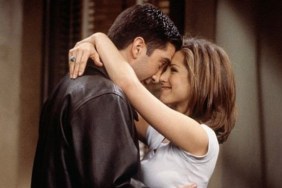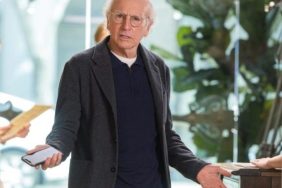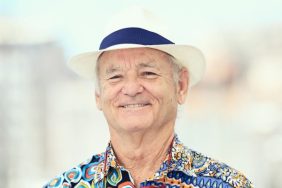It seems unthinkable that the world could ever lose an artist like David Bowie. The innovative and inspiring musician, responsible for hit pop songs and rich experimental sounds, became an icon like no other. He inspired pop fashion and challenged sexual norms. He was also, more often than you might have realized, an actor… and quite an accomplished one at that.
On camera, David Bowie played off his persona so much that one could easily miss just what exceptional work he was doing. He was often cast in roles that benefitted from the baggage “David Bowie” could specifically bring: amorphous sensuality, distinctive style, ethereal delivery, and all the vestiges of worldwide fame. But many pop stars failed to translate their musical and stage show genius to the screen. Bowie’s introspective artistry and distinctive expressionism made him more fascinating than his peers. Compare any David Bowie performance to, say, any dramatic performance by Mick Jagger. The difference is obvious. Bowie had “it,” in a very distinctive yet universal way.
Related: Album Stream: David Bowie Returns With Brilliant ‘Blackstar’
So as you mourn the loss of a true artistic legend, and play his albums over and over again (which you should have been doing anyway), we ask you to stop and consider his many great performances as an actor, and not just a musician. These are the David Bowie performances we will never forget.
The Man Who Fell to Earth (1976)

British Lion Films
David Bowie’s first starring role was in the surreal science-fiction drama The Man Who Fell to Earth, directed with a hypnotic calm by Nicholas Roeg (Don’t Look Now). In the film, Bowie plays Thomas Jerome Newton, an alien who arrives on our planet with a mission to send water back to his home world, which is suffering from apocalyptic draught. Newton rises to power on Earth by patenting his alien technology, and plans to use his wealth to build a spaceship capable of shipping water back home, but he is gradually swept up in human vice, and his palace becomes his prison.
Bowie admitted to Rolling Stone that he was abusing cocaine heavily during the production of The Man Who Fell to Earth, which may account for his overwhelming vulnerability on camera. Either way he was giving a great performance. The Man Who Fell to Earth is a potent allegory, but also an eery and dreamlike saga of one man’s struggle with success, and Bowie knew a thing or two about that.
The Hunger (1983)

MGM
David Bowie co-starred in another surreal tragedy, Tony Scott’s stylish vampire drama The Hunger. He plays the consort of an immortal vampire, played by Catherine Deneuve, who discovers to his creeping horror that he is aging more rapidly than she is, and tries to find a “cure” from a scientist played by Susan Sarandon.
The Hunger is not strictly David Bowie’s movie, but his tale dominates the first half of the movie, and Scott relies as heavily on the actor’s gloomy persona as he does his many editing tricks and famous, smoky locales. Bowie devolves from a sensuous sex object to an obsessed wretch with trademark elegance, and delivers one of his finest performances.
Labyrinth (1986)

LucasFilm/TriStar Pictures
Bowie shuffled off the dark deconstructions of his iconic persona and instead embraced his glamor in Labyrinth, a classic but incredibly strange family film from Jim Henson. In the film, a young Jennifer Connelly plays a teenaged girl who resents her infant brother, and wishes that goblins would come and take the child away. Bowie, playing The Goblin King, happily obliges, and he challenges Connelly to rescue the baby from the center of his sprawling maze, filled with strange sights and impossible riddles.
Labyrinth may not be a great film in the traditional sense, but its inventive presentation – packed as it is with elaborate, demonic puppets – and empowering message have made it a nostalgic favorite. It’s also probably fair to say that Bowie’s performance, suave and humorous and packing an enormous codpiece, jumpstarted the puberty of a whole generation. But more than that, he sings a song as dumb as “Magic Dance” without batting an eye at how ridiculous this particular gig really was, and for that he probably deserved some kind of award.
The Last Temptation of Christ (1988)

Universal Pictures
It is hard to discuss Martin Scorsese’s The Last Temptation of Christ without delving deeply into the controversy that surrounded it. Based on Nikos Kazantzakis’s 1955 novel, as opposed to The Bible, Scorsese’s film emphasized the unthinkable internal struggle that Jesus Christ must have faced in his lifetime. Scorsese used this personal conflict as a means to humanize an outsized figure, and if you can get past the trappings of the tale (which aren’t strictly canon), you may find that this is nevertheless one of the finest Biblical stories ever put on film.
David Bowie plays a small but pivotal role in The Last Temptation of Christ, as Pontius Pilate, the Roman prefect of Judaea who condemns Christ to death. Pilate appears late in the film but David Bowie’s David Bowie-ness adds a necessary weight to his character. He is important – to himself and to the story – but detached from the people he rules, and Bowie’s inherent persona and increasing talent as a thespian conveyed what was needed with confidence and grace.
Twin Peaks: Fire Walk With Me (1992)

New Line Cinema
It may only qualify as a cameo, but David Bowie’s enigmatic appearance in Twin Peaks: Fire Walk With Me is one of the most fascinating cameos ever filmed. The film, a prequel to the hit series Twin Peaks, details the events that preceded the tragic and mysterious death of Laura Palmer. Eventually, FBI Agent Dale Cooper (Kyle MacLachlan) will be called to the small Washington town to investigate the murder of the homecoming queen. But for now he is at FBI headquarters, where his fiddling with the building’s surveillance cameras presages the inexplicable appearance of Agent Phillip Jeffries, long lost and babbling about meeting the strange extra-dimensional entities that manipulate the many odd events of the series.
Here again, casting David Bowie to a motion picture in a small role meant an immediate influx of gravitas. The nightmarish appearance and equally disturbing disappearance of Phillip Jeffries feels like more than a stray plot point once you see that David Bowie is involved. And of course Bowie commits to this small role wholeheartedly, selling the incomprehensible fear that this baffling scene requires.
Basquiat (1996)

Miramax
Julian Schnabel’s exceptional biographic film about neo-expressionist artist Jean-Michel Basquiat is remarkable for several reasons. Jeffrey Wright is captivating as Basquiat himself, Schnabel’s depiction of the 1980s New York art scene is engrossing, and David Bowie is absolutely perfect in his role as Andy Warhol, the only pop artist with arguably more clout than Bowie himself.
Bowie is a rake in Basquiat, a uniquely defined figure against the earthy urban backdrop. His sleepy delivery and focused interest in Jean-Michel Basquiat, along with his other unusual art projects, anchor Schnabel’s film in a refined significance. Basquiat stood next to larger than life figures like Warhol and he still stood out. A tricky balance, captured impressively by both Wright and Bowie.
Zoolander (2001)

Paramount Pictures
Like many pop stars before him, when David Bowie appeared on camera, he was often playing a skewed version of himself. Perhaps that’s why his appearance in the silly comedy Zoolander was so inspired. Here at last Bowie actually played himself, in a situation so completely absurd it still feels of a piece – sort of – with acclaimed surrealist dramas like Twin Peaks.
The scene is idiocy: male models Derek Zoolander (Ben Stiller) and Hansel McDonald (Owen Wilson) are rivals who engage in an impromptu dance-off, despite the protestations of conscientious objector Billy Zane (playing himself). And who could possibly judge this contest of champions? David Bowie of course, who just happens to be there, because of course he would be. Where else would he be? And who else could stare with such convincing fascination at Owen Wilson as he removes his underwear without first removing his pants?
Nobody but Bowie. Nobody.
The Prestige (2006)

Buena Vista Pictures
The Prestige may not be David Bowie’s last motion picture performance (that would be the 2009 teen comedy Bandslam, in which he once again played himself). It is, however, his last iconic role. Christopher Nolan’s far-fetched tale of turn of the century magicians, who move heaven and earth to destroy one another, ventures into strange territory when Robert Angier (Hugh Jackman) enlists the aid of renowned scientist Nikola Tesla to invent the most incredible trick ever pulled. Bowie, of course, plays Tesla, who here receives the sort of reverence that sadly eluded the undeniable genius in life.
What’s more, Bowie receives an incredible gift in The Prestige: an unforgettable entrance. Tesla appears from out of a giant Tesla coil, electricity rippling around him. (It’s the sort of image that Bowie himself might have concocted for one of his unforgettable music videos.) But more to the point, the character of Tesla – who himself was undone by a rivalry with Thomas Edison – gives Bowie an opportunity impart wisdom then yet feed the beast of ambition anyway. A complicated turn from a complicated performer, presented with his usual, impressive brand of refinement.
Top Photo: British Lion Films
William Bibbiani (everyone calls him ‘Bibbs’) is Crave’s film content editor and critic. You can hear him every week on The B-Movies Podcast and watch him on the weekly YouTube series Most Craved and What the Flick. Follow his rantings on Twitter at @WilliamBibbiani.








